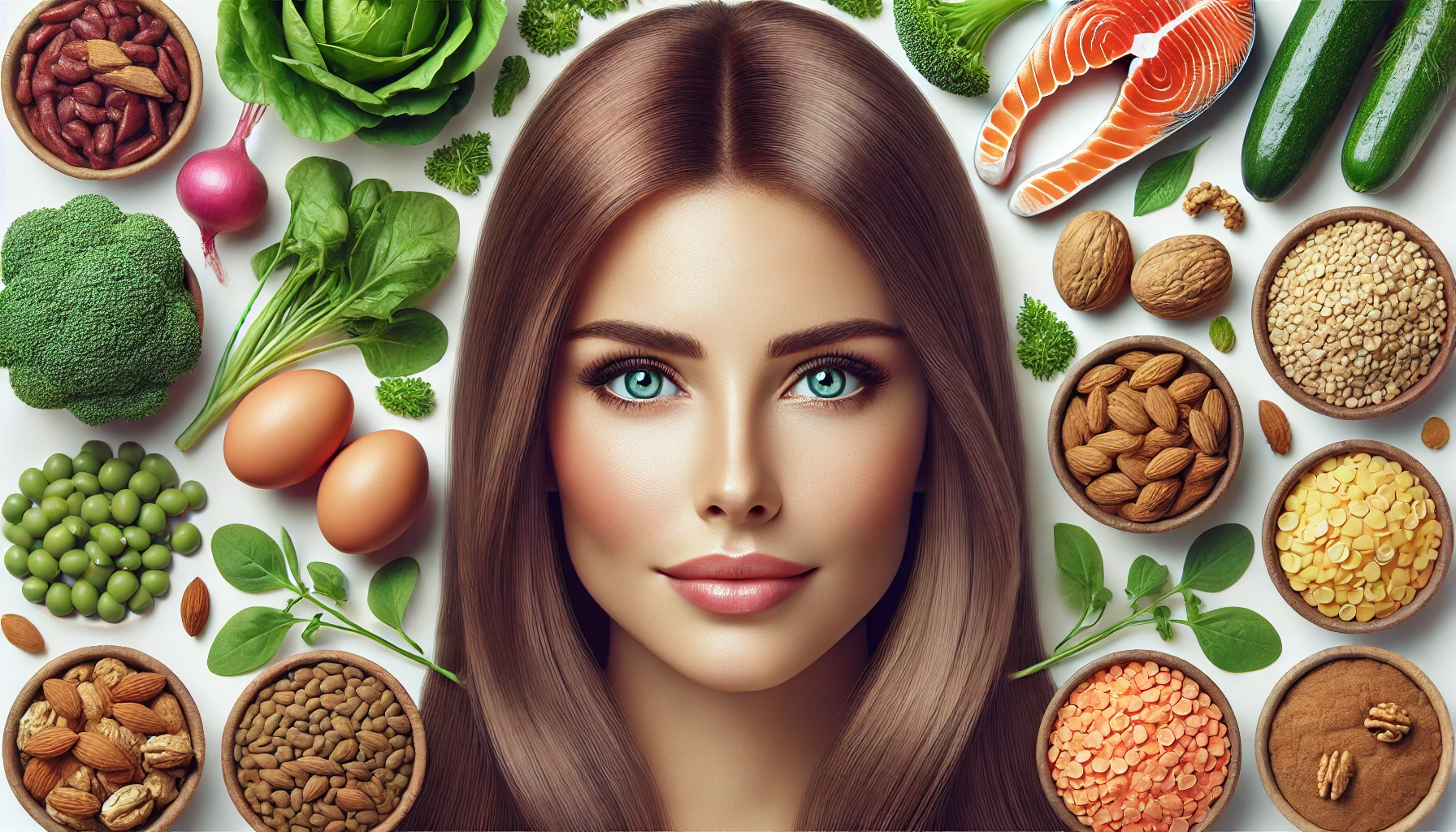This post was written with Consensus AI Academic Search Engine – please read our Disclaimer at the end of this article. Maintaining healthy hair and promoting hair growth are common concerns for many individuals. Various dietary supplements and nutrients have been studied for their potential benefits in reducing hair loss and enhancing hair growth. This article explores the efficacy of different dietary components and supplements in promoting healthy hair.
Wheat Polar-Lipid Complex
A study investigated the effects of a wheat polar-lipid complex (WPLC) containing sphingolipids and digalactosyl diglycerides on hair characteristics in women experiencing acute hair shedding. The results showed that WPLC supplementation significantly decreased the proportion of hair in the telogen phase and increased the proportion in the anagen phase. Additionally, it reduced hair shedding and improved hair resistance to breakage and growth. These benefits were observed as early as 56 days into the supplementation and were also significant in postmenopausal women1.
Marine Protein-Based Supplements
Marine protein-based dietary supplements have also been shown to be effective in reducing hair shedding and increasing hair fiber diameter. A clinical trial involving premenopausal women with subclinical hair thinning demonstrated that daily consumption of a marine extract-based supplement significantly reduced hair shedding and increased the mean diameter of vellus-like hair after six months2. Another study confirmed that an extra-strength marine protein supplement promoted terminal hair growth and decreased hair shedding in women with self-perceived thinning hair7.
L-Cystine and B-Complex Vitamins
L-cystine, an amino acid, along with B-complex vitamins, has been traditionally used in dietary supplements for hair loss treatment. A study on a specific L-cystine, medicinal yeast, and pantothenic acid complex-based supplement showed significant improvement in the anagen hair rate in women with telogen effluvium. The supplement led to better hair growth and appearance compared to the placebo group3.
Methionine Supplementation
Methionine, an essential amino acid, has been studied for its effects on hair follicle development. In Angora rabbits fed a low-protein diet, methionine supplementation improved wool production performance and feed efficiency. The study suggested that methionine promotes hair follicle development through mechanisms involving insulin-like growth factor 1 (IGF1) and keratin-associated proteins4.
Arginine Silicate Complex and Magnesium Biotinate
A novel combination of inositol-stabilized arginine silicate complex and magnesium biotinate was tested for its effects on hair and nail growth in rats. The results indicated that this combination significantly increased hair density and the percentage of hair follicles in the anagen phase. Blood levels of vascular endothelial growth factor, associated with hair growth, were also higher in the treatment groups5.
Herbal Supplements
Korean medicinal herbs have been explored for their potential in promoting hair growth. A study on a hair tonic and food containing Korean medicinal herbs showed increased hair density and thickness in an alopecia model of C57BL/6 mice. The treatment also elevated IGF-1 levels in the dorsal skin, suggesting a positive effect on hair growth8.
Protein Levels and Hair Quality
The impact of dietary protein levels on hair growth and pelt quality was studied in mink. The findings revealed that higher protein levels during pregnancy and lactation, followed by a shift to lower protein levels, influenced hair growth and quality. The study highlighted the importance of adequate protein intake for optimal hair development9.
Conclusion
Various dietary supplements and nutrients, including wheat polar-lipid complex, marine protein-based supplements, L-cystine, methionine, arginine silicate complex, magnesium biotinate, and herbal supplements, have shown promising results in promoting healthy hair and hair growth. These findings underscore the potential of dietary interventions in managing hair loss and enhancing hair quality.
Disclaimer
The content presented in this blog is generated by Consensus, an AI-powered academic search engine, and is based on publicly available scientific literature. While every effort is made to provide accurate, up-to-date, and well-researched information, the content is intended for informational and educational purposes only. It does not constitute medical advice, diagnosis, or treatment. Always consult a qualified healthcare professional before making any decisions regarding medical conditions, treatments, or medications. The AI system’s analysis may not cover all perspectives, emerging research, or individual cases, and it is not a substitute for professional expertise. Neither the blog publisher nor the developers of the AI-powered search engine are responsible for any actions taken based on the information provided in this content. Use of this information is at your own risk. Citations to the original scientific studies are included for reference, but these studies should be reviewed in full and interpreted with the guidance of a healthcare or research professional.
If you are experiencing a medical emergency, please seek immediate attention from a healthcare provider.
